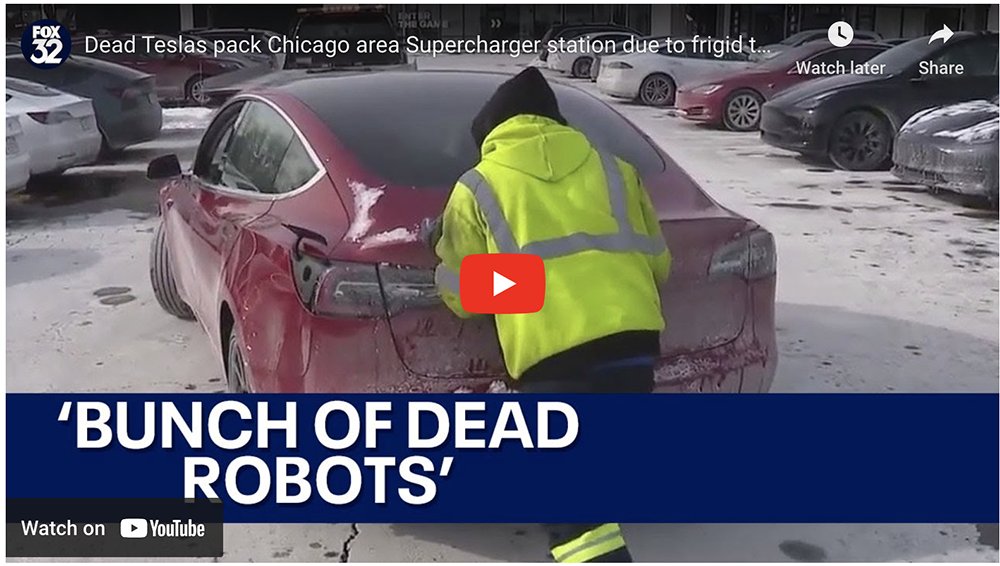The World Still Needs Oil
![]() Three Catalysts Supercharge Oil Prices
Three Catalysts Supercharge Oil Prices
 “On day one of the Biden administration, the White House took steps to destroy the U.S. oil-and-gas industry,” says Paradigm’s macro authority Jim Rickards.
“On day one of the Biden administration, the White House took steps to destroy the U.S. oil-and-gas industry,” says Paradigm’s macro authority Jim Rickards.
Team Biden moved swiftly to restrict domestic oil and gas production through policy changes including revoking permits for the Keystone XL pipeline, introducing new constraints on offshore drilling and federal lands exploration as well as tightening fracking regulations.
Plus, the White House passed the misnamed Inflation Reduction Act in late 2022, allotting nearly $1 trillion toward Green New Deal spending, earmarking money for electric vehicle rebates, solar panel incentives and offshore wind projects.
More recently, approvals for new liquid natural gas (LNG) export facilities were put on hold, continuing a policy favoring investment in so-called renewable energy while applying scrutiny to fossil fuel expansion.
“These radical policies have been accompanied by many state initiatives from California to New Jersey banning sales of new internal-combustion engine (ICE) automobiles after the mid-2030s and mandating electric-powered school buses and urban transportation systems,” says Jim.
“Of course, the proposed carbon-neutral world is entirely nonfeasible.
 “There is not enough lithium, cobalt, nickel or graphite in the world to make more than a small fraction of the batteries needed to power a nation of EVs,” Jim adds — to say nothing of the metals required to manufacture solar panels, wind turbines, etc.
“There is not enough lithium, cobalt, nickel or graphite in the world to make more than a small fraction of the batteries needed to power a nation of EVs,” Jim adds — to say nothing of the metals required to manufacture solar panels, wind turbines, etc.
Jim notes how recent extreme cold snaps underscored limitations of electric vehicle reliability, puncturing Team Biden’s overconfidence.
In January, for instance, reports emerged of Teslas and other EV models stranded in frigid temperatures in the Chicago area as depleted batteries failed to hold or take a charge. Footage of immobilized Teslas from charging stations went viral online:

Courtesy: Fox 32, YouTube
This punctuates concerns that policies favoring EVs have raced ahead of supporting infrastructure and capabilities, and, at the same time, highlights an inconvenient reality:
“The power that is needed to maintain the grid can only come from oil, natural gas, coal, nuclear or hydro,” Jim says.
“Coal is not acceptable to most. Nuclear is also unpopular and has a 10–15-year horizon to build new plants. Hydro is practical but limited to certain geographic areas. This leaves oil and natural gas as the only practical large-scale sources of energy,” he says, while mentioning the crimp on global supply resulting from sanctions on Russian oil and LNG.
 “Outright bans or price caps on exports of Russian oil and natural gas have caused a surge in prices in Western Europe,” says Jim.
“Outright bans or price caps on exports of Russian oil and natural gas have caused a surge in prices in Western Europe,” says Jim.
“Russia has partly maintained the pipeline flow notwithstanding U.S./U.K. sabotage of the Nord Stream pipelines, but tanker deliveries of oil have been rerouted to China,” he continues.
In particular? “The German economy has suffered from the higher energy prices, and German industry, especially chemicals and automobiles, have begun to outsource production to other countries. This has resulted in what some analysts call the ‘deindustrialization of Germany.’”
As for the rest of Europe, energy shortages “have been made up in part by exports from the U.S., but all this does is transfer the upward price pressure from Europe to the U.S. And price caps have resulted in scarcity, black-market operations and higher prices everywhere they have been tried.
“The war in Ukraine shows no signs of abating,” Jim observes. “As a result, we should expect upward price pressure on oil and natural gas to continue indefinitely.
 “All three vectors — Biden’s attack on the U.S. energy industry, Green New Scam policies and the War in Ukraine — favor significant gains in the prices of oil and gas in the months ahead,” says Jim.
“All three vectors — Biden’s attack on the U.S. energy industry, Green New Scam policies and the War in Ukraine — favor significant gains in the prices of oil and gas in the months ahead,” says Jim.
“After hitting an interim low of $68.61 per barrel on Dec. 12, 2023, oil is now trading about 10% higher in about eight weeks,” he notes.
“Tensions in the Middle East and the re-routing of oil tankers around South Africa instead of through the Suez Canal due to Yemeni missile attacks will continue the upward price pressure.
“The world is in the hypnotic grip of climate alarmists,” Jim adds. “Meanwhile, physics, climatology, chemistry and practicality all point in the direction of continued use of oil and natural gas as primary sources of energy for the foreseeable future.
“This is an excellent recipe,” Jim concludes, “for continued price gains in the stock of oil and natural gas firms that are in a position to supply the world’s essential energy needs.”
At our 7 Predictions Summit in mid-December, Jim talked up both Exxon Mobil (XOM) and Chevron (CVX) as the go-to safe plays. They still are.
![]() A Red Flag… or a White Flag?
A Red Flag… or a White Flag?
 Credit card delinquencies spiked over 50% in 2023 as U.S. consumer debt levels surged, the New York Fed reports.
Credit card delinquencies spiked over 50% in 2023 as U.S. consumer debt levels surged, the New York Fed reports.
Credit card delinquencies saw the sharpest increases, with 90-day overdue balances surging 6.4% by Q4 2023, up from just over 4% the year before. All told, $73 billion in credit card balances are at risk of default.
“Delinquencies also rose in mortgages, auto loans and the ‘other’ category,” CNBC reports. “Overall, 1.42% of debt was 90 days or more past due, up from just over 1% at the end of 2022.”
The New York Fed attributes escalating missed payments to higher interest rates and budgets squeezed by inflation. But what an ouroboros! Aggressive rate hikes to fight inflation have substantially increased borrowing costs.
“Since the central bank began its tightening [in early 2022], the typical rate on credit cards leaped from about 14.5% to 21.5%, according to Fed data,” CNBC says.
Meanwhile, overall consumer debt compared with income remains below early 2020 levels. And the delinquency uptick flags financial insecurity for many Americans — particularly for young and low-income Americans.
 Proving that Wall Street is mightily disconnected from Main Street, stocks are rallying today.
Proving that Wall Street is mightily disconnected from Main Street, stocks are rallying today.
Most notably, the S&P 500 index — up 0.75% — is fewer than 10 points away from 5,000. Meanwhile, the tech-heavy Nasdaq and the Big Board have gained 0.80% and 0.40% respectively.
And crude oil is chugging upward; a barrel of West Texas intermediate is priced at $73.50. But precious metals are of two minds. Gold is up about 0.10% to $2,035.70 per ounce, according to Kitco, while silver is down 0.30% to $22.40.
As for the never-sleeping crypto market, Bitcoin is up 0.30% to $43,245 and Ethereum is up 1.20% to $2,410.
![]() Follow-up File: A German Courtroom Farce
Follow-up File: A German Courtroom Farce
 On occasion during the pandemic era, we’ve cited the writings of C.J. Hopkins — an American essayist and playwright living in Berlin for the past two decades.
On occasion during the pandemic era, we’ve cited the writings of C.J. Hopkins — an American essayist and playwright living in Berlin for the past two decades.
He’s been a vocal critic of COVID lockdowns, restrictions and mandates. His essays were collected in a 2022 book called The Rise of the New Normal Reich. The cover art for the book? As you might be able to make out, the masks include the image of a swastika…

In May 2023, German prosecutors went after Hopkins for his book cover, citing hate speech, and threatening 60 days in jail or a fine of 3,600 euros (almost $4,000).
But in late January, Hopkins was — rather astonishingly — acquitted. “I’ll write about my day in court in detail once I’ve slept for a week,” he promised at the time. So, here goes…
 “My favorite part of the prosecutor’s argument [is] he accused me of ‘relativizing the Holocaust’ because he claimed that comparing New Normal Germany to Nazi Germany is factually inaccurate, which assertion is revealing, and just staggeringly ignorant,” Hopkins details.
“My favorite part of the prosecutor’s argument [is] he accused me of ‘relativizing the Holocaust’ because he claimed that comparing New Normal Germany to Nazi Germany is factually inaccurate, which assertion is revealing, and just staggeringly ignorant,” Hopkins details.
To wit, this snippet from the prosecutor’s pretrial pleading: “The accused equates the crisis management measures of the years 2020–2022, which came about within constitutional procedures and were enacted and implemented by and through democratically legitimized institutions, with the dictatorial methods of the Nazi regime.” [Emphasis ours.]
But Hopkins points out: “Of course, the history of the transformation of Germany into a Nazi dictatorship by means of ‘constitutional procedures and democratic processes’ is extremely well-documented” — even a cursory understanding of 1930s-era history supports that, he argues.
“Yes, the whole trial was as farcical as it sounds,” Hopkins concludes. “[The judge] made a big show of proclaiming that, by acquitting me of the fabricated hate-crime charges, she was proving that ‘Germany is not a totalitarian state.’” (To prove her point, she even affixed a mask as she left the bench.)
“You know, the kind of totalitarian state where books are banned, political speech is censored and dissident authors are harassed by the police and subjected to ridiculous show trials,” Hopkins adds… Not that we Americans would know anything about that.
Oh, then there’s this sick addendum: “So the German authorities have filed an appeal to overturn my acquittal in criminal court last week. Apparently, their plan is to keep putting me on trial until they get a judge who is willing to convict me of something, or to bankrupt me with legal costs.
“Silly me,” says Hopkins, “for a moment there, I was actually starting to believe this was over.”
The 5 Bullets will certainly provide a follow-up…
![]() MSM: Tucker Carlson = Russian Stooge
MSM: Tucker Carlson = Russian Stooge
 Here’s a CNN headline this morning: “Tucker Carlson Is in Russia to Interview Putin. He’s Already Doing the Bidding of the Kremlin.”
Here’s a CNN headline this morning: “Tucker Carlson Is in Russia to Interview Putin. He’s Already Doing the Bidding of the Kremlin.”
It’s a headline that’s as predictable as it is disheartening, highlighting the toddler-like tantrum that corporate media is pitching today (a subject our colleague Sean Ring explores in detail at The Rude Awakening.)

Per the former, “just two weeks after the Iran Hostage Crisis began in November 1979,” CBS says, “Mike Wallace spoke with Ayatollah Khomeini in this classic interview.”
So Mike Wallace’s interview is a “classic,” but Tucker Carlson’s interview is… an act of treason? Got it.
![]() Another New Year’s Resolution Deserted
Another New Year’s Resolution Deserted
 “As if sticker shock in grocery stores hasn’t been enough, inflation has hit another consumer favorite: Girl Scout cookies,” The New York Times reports.
“As if sticker shock in grocery stores hasn’t been enough, inflation has hit another consumer favorite: Girl Scout cookies,” The New York Times reports.
“When Girl Scouts in New York start their annual cookie sales this week, customers will be paying $7 a box for favorites like Thin Mints, Samoas and Tagalongs, up from $5 last year.”
“Across the country, Girl Scout troops have been seeing jumps in cookie prices over the last couple of years,” NYT says. “But they are not all seeing them at the same levels.
“That’s because the 111 councils that make up the Girl Scouts of the USA operate as individual nonprofit organizations and negotiate separate contracts with the two bakeries” — ABC Bakers and Little Brownie Bakers — “that are licensed to manufacture the cookies. The various councils also decide when to sell the cookies.”

“As much as $3.73 of each box of cookies goes to shipping, restocking and credit card fees, as well as to the local council to maintain camps and properties and pay for programming. That leaves the Girl Scout troops with 75 cents–$1.35 a box in proceeds.”
Regardless of inflation, troop leader Elizabeth Franke of East Windsor, New Jersey, says: “People who are going to buy the cookies are still going to buy them.” That’s just the way the cookie crumbles, right?
You all take care, and we’ll be back tomorrow with another round of 5 Bullets…
Best regards,
Emily Clancy
Associate editor, Paradigm Pressroom's 5 Bullets










